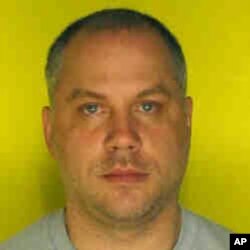A divided Ohio Supreme Court on Wednesday sided with a death row inmate seeking DNA testing on a cigarette butt found near the scene of the 1990 double murder that led to his sentence.
At issue in Tyrone Noling’s case is whether there is a constitutional appeals process for death row prisoners who are denied DNA testing after a trial is over.
The court ruled 4-3 that part of a law denying that appeals process is unconstitutional.
Noling was convicted of killing Bearnhardt and Cora Hartig, both 81, at their Portage County home. He maintains his innocence.
Chief Justice Maureen O’Connor, writing for the majority, rejected prosecutors’ arguments supporting the quick enforcement of court decisions.
“Are we to take this to mean that expeditious enforcement of the death penalty is the guiding factor and goal? Are we to value speed over certainty?” O’Connor wrote. “Of all cases that cry out for certainty, it is cases that result in the extinguishing of a human life.”
The solution, O’Connor wrote, was to strike down part of the law as unconstitutional and leave the rest intact.
Justice Terrence O’Donnell, writing for the minority, agreed the law was unconstitutional but said it was wrong to focus just on one aspect. The result, O’Donnell said, was justices acting as lawmakers by selectively changing the wording of a law.
The “authority to sever the unconstitutional part of a statute does not give this court license to rewrite it by selectively deleting words to change the meaning of the language that the legislature enacted,” O’Donnell said.
Messages were left for the Portage County prosecutor and for Noling’s attorney.
Noling, 44, was part of a group involved in home robberies of elderly couples. Three others in the group implicated Noling in the slayings of the Hartigs during a burglary, although they later retracted their statements, saying they had been pressured by police to name Noling as the shooter.
The original DNA tests of a cigarette butt found in the Hartigs’ driveway didn’t match Noling or the others in the group. But Noling contends technological advances make it possible to identify the smoker and determine whether that person was among other previously undisclosed suspects.
Prosecutors argued that Noling has no legal right to appeal decisions about post-conviction DNA tests. They said all DNA evidence that can be analyzed in the case already has been tested, and his appeals should end.





